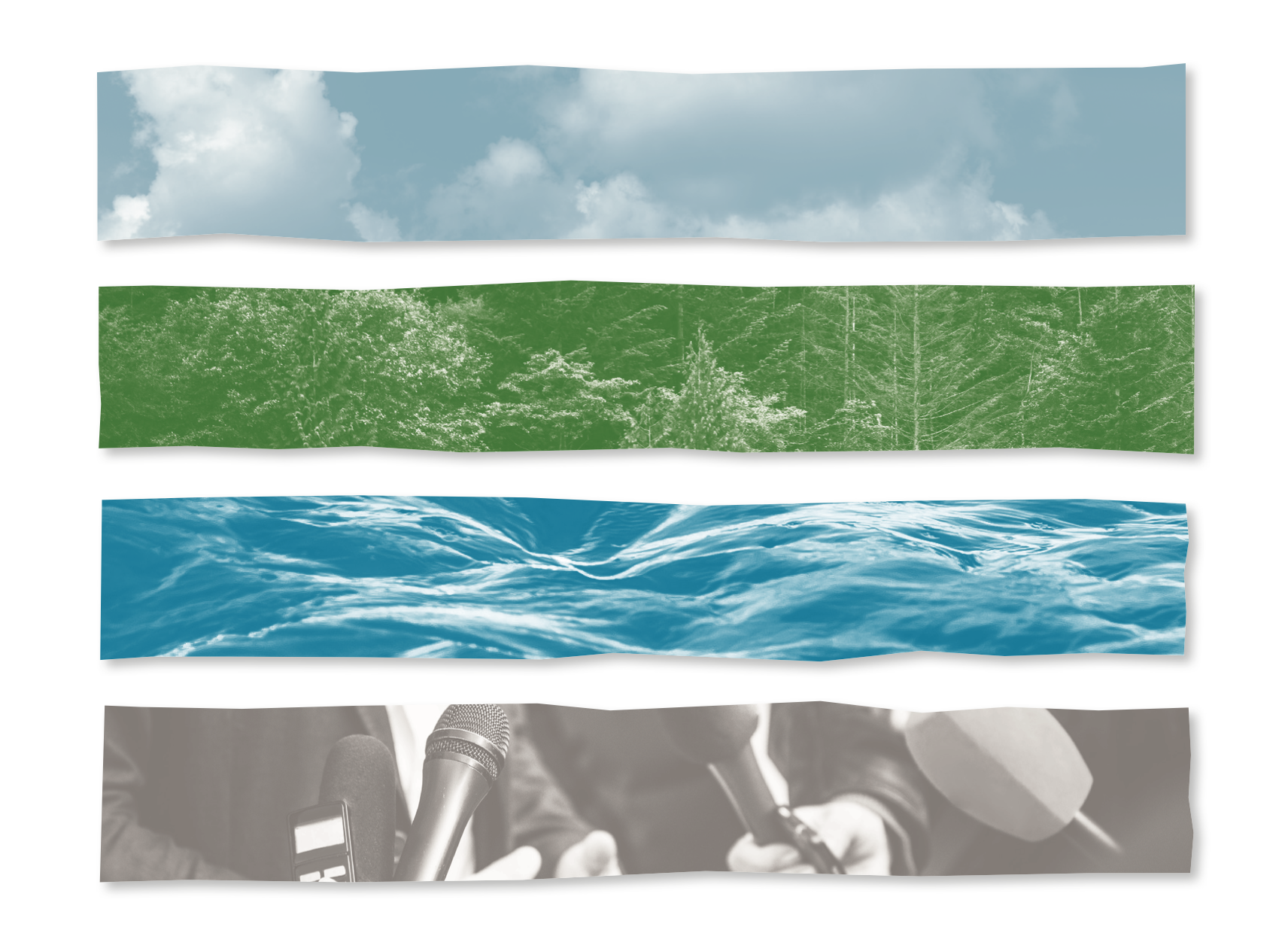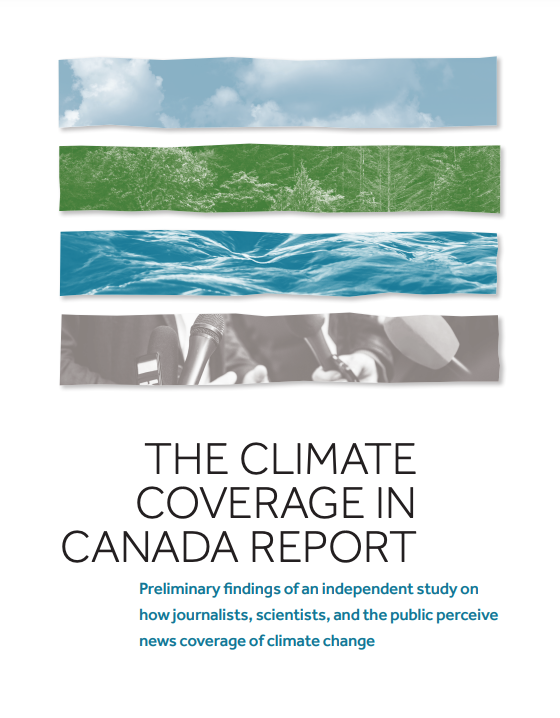The Climate Coverage in Canada Report
Many of the countries that gathered in Glasgow for the recent COP26 summit may not yet be treating climate change as a crisis. But a first-of-its-kind Canadian study that surveyed climate scientists, journalists and the public for their opinions on climate change coverage has found large majorities of each group somewhat or strongly agree there is a climate crisis (scientists 96 per cent, journalists 95 per cent, public 81 per cent) and the news media should report on it that way (scientists 91 per cent, journalists 95 per cent, public 73 per cent).
“The world is warming. Humans are responsible. And climate change is already responsible for many disasters,” said Prof. Sean Holman, one of the study’s principal investigators. “Scientists, journalists, and the public recognize these facts and want their news media to reflect them.”
The surveys, which were fielded by Vancouver-based polling firm Research Co., also found journalists want climate scientists to be consulted in newsroom decisions on climate coverage (82 per cent).
And scientists want the media to host forums where the public can directly ask them questions about climate change (89 per cent).
“The surveys show journalists and scientists have more in common with one another than the media’s coverage, at times, suggests,” said fellow principal investigator Dr. Peter Ryan.
“That means there’s an opportunity for them to work more closely together in that coverage.”
Those changes are needed because, right now, climate scientists and journalists surveyed agreed the public in Canada doesn’t know enough to make informed voting decisions about climate change (scientists 80 per cent, journalists 77 per cent), nor is the news media providing that information (scientists 67 per cent, journalists 65 per cent).
“Democracy depends on voters using facts to make informed decisions,” said co-investigator Dr. Patricia Elliott.
“These survey results tell us the news media in Canada need to do more to give the public science-based information about climate change and its connection to daily events.”
The surveys were conducted with the support of the Canadian Association of Journalists, the Canadian Association of Black Journalists, and CWA Canada, the country’s oldest and only all-media union. One-hundred and forty-three scientists (Oct 8-Nov 3), 148 journalists (Oct 8-Nov 3), and 1,006 members of the public (Oct 27-28) completed them.
CLIMATE COVERAGE IN CANADA: The Climate Coverage in Canada Report is part of a study that examines the relationship between journalists, scientists and the public in news coverage of climate change. Led by researchers at the University of Victoria, Mount Royal University and First Nations University of Canada, it is the first Canadian study to compare the perceptions of all three groups.
For more information about the Climate Coverage in Canada Report, contact:
Sean Holman, Wayne Crookes Professor of Environmental and Climate Journalist at the University of Victoria (403) 397-4751 | smholman@uvic.ca, Peter Ryan, Associate Professor of Public Relations at Mount Royal University (780) 994-9384 | pryan@mtroyal.ca or Patricia Elliott, Distinguished Professor of Investigative and Community Journalism at First Nations University of Canada (306) 539-6608 | pelliott@firstnationsuniversity.ca
The Climate Coverage in Canada Report is hosted by J-Source.


